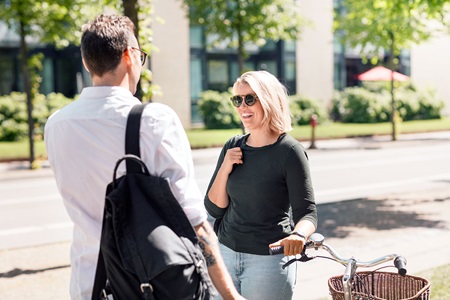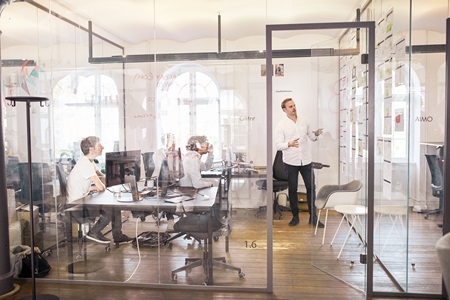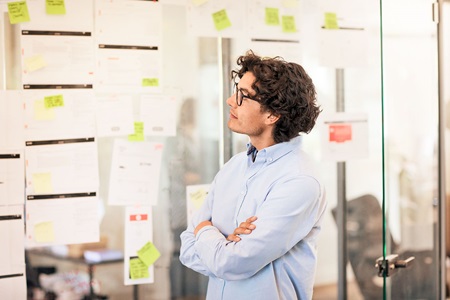A new report by Danske Bank and Rainmaking reveals that the majority of Nordic impact startups focus their business on solving local problems in the Nordics. In particular, the UN goals “Responsible consumption and production” and “Affordable and clean energy.”
To support the growth of these promising companies, Danske bank, Research Institute of Sweden (RISE) and WeWork Labs have recently teamed up in order to create a business accelerator programme – “the +Impact Accelerator #4” - taking place in the second half of 2020 in Stockholm.
12 Nordic startups will participate, selected from 120 applications and a Bootcamp in May for 30 startups. The aim is to help the startups become more robust, scale their business and become more eligible for investment.
Supporting sustainable growth in the Nordics
“We have designed the accelerator so that it supports what the Nordics are already good at and the businesses that most impact startups are in”, says Maria Grabowska, Project Manager from Danske Bank. “In particular, we focus on circular economy, that is, re-integrating waste into the value chain.”
“As the second-largest bank in the Nordics, we bring our business competencies into play this way and support the scaling of these businesses, thereby contributing to growth and a sustainable economy in our region”, Maria says.
“We look forward to integrating these promising young startups into our global community and make introductions to entrepreneurs, corporates, investors and mentors from a variety of industries", Thijs Sprangers, Head of WeWork Labs Northern Europe, says.
Would you like to learn more about the +impact accelerator?
The #4 is closed, but more accelerators are to come, so get in touch with us already now!
Fueling the circular economy
Renfuel Materials will be one of the participants at the accelerator in Stockholm. The impact startup creates bioplastics from a forestry waste product, Lignin. Bioplastics can replace normal plastics created from crude oil, with a huge potential for supporting the circular economy worldwide. Today, 99% of all plastics are made from crude oil, ranging to a stunning 359 mio. tons annually (2018).
“I am so much looking forward to learn and educate myself at the accelerator and meet other startups and the teams behind in person,” says Clara Pierrou, Business Development Manager, and chemist to the bone.
“Right now, we are in a phase of proof of concept and expect to open our eyes to new market opportunities at the accelerator. We are of course heavy on technology so we are hungry to learn more about general business development, finance, investment and marketing in particular, challenging our business concept.”
Three day pre-accelerator bootcamp in May – all online
Danske Bank arranged the bootcamp from Friday to Sunday, 9 am to 17 pm every day, including:
- Key note speaks
- Pitches for all startups to a jury
- 1:1 consultancy with experts
- Lunch, bar and even meditation
Plant a seed on the sunny side
Mbegu Solar (“seed” in Swahili) participated in the bootcamp, but will not attend the autumn accelerator. The reason is that one of Mbegu Solar’s motivations is to identify potential partners in Africa, whereas the accelerator focuses on the Nordics.
However, founder Wenjing Yang is very positive:
“We definitely got more knowledge and new ideas out of participating in the bootcamp in order to development our business model and do an impact assessment. Our coach from Danske Bank was great, and helped us to think more about the big picture - how to grow and scale up. She also shared some challenges their portfolio companies were facing in emerging markets which was also quite relevant for us to be aware of.
So, a very nice initiative, offering a lot of win-win situations”, Wenjing ends.
Mbegu Solar offers a leasing based solar product for emerging markets, directed towards areas without traditional energy supply and for customers with limited budgets – private persons, small entrepreneurs and schools.
Impact support from Danske Bank
- +impact accelerator
- • +impact platform where impact startups are matched with investors
- • State of the Nordic impacts report (third year)
- • Impact investment report 2019 (next edition to be published in October 2020)
- • Events, advice etc.
- • Customer relations – financial support and seamless daily banking




